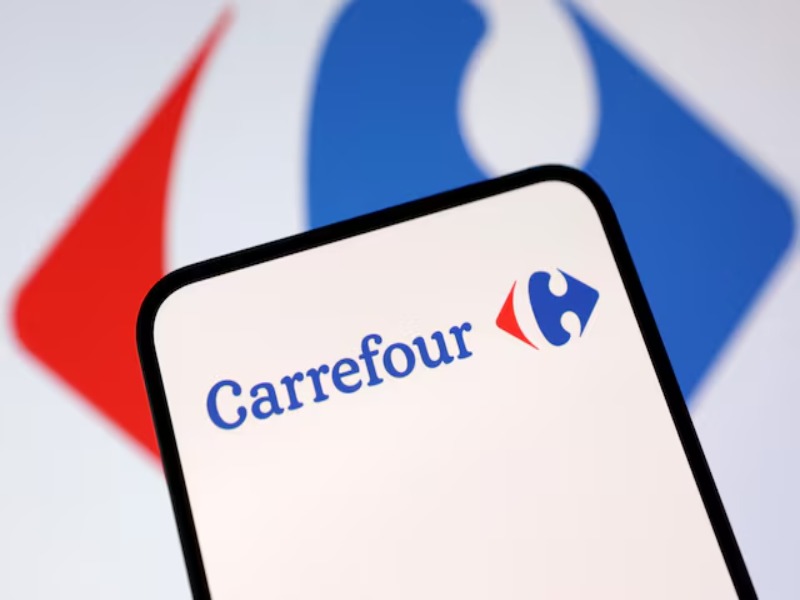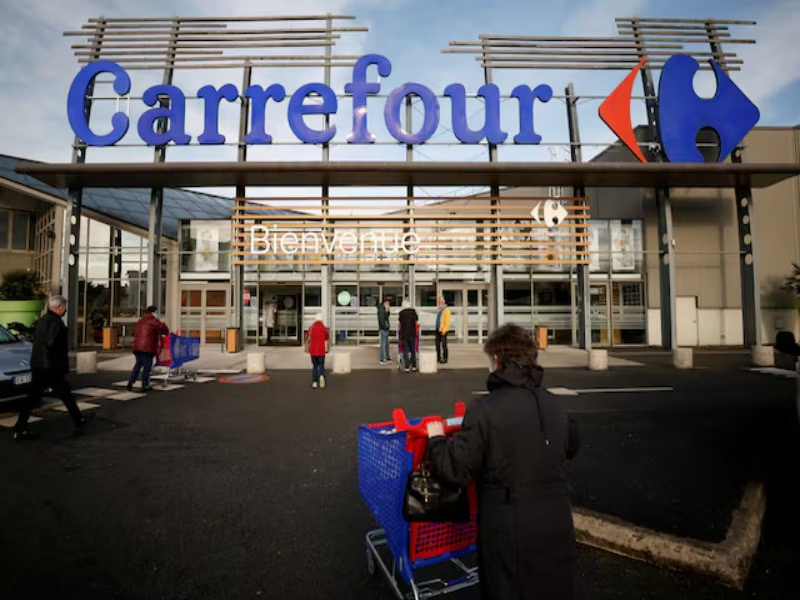Carrefour, a global retail institution and the forerunner of hypermarkets, is contracting more quickly than most people anticipated.
In Europe, the company has pulled back from two of its largest overseas markets. Over in Asia, its once-thriving empire has nearly crumbled. Meanwhile, in the Middle East, the recognizable blue-and-red logo has disappeared from several countries, making way for local alternatives.
The pressing question isn’t whether Carrefour can maintain its presence everywhere; it’s how long its remaining markets, like the UAE, will stay intact as global exits accelerate.
A Retrenchment in Europe Following Years of Conflict
Recent actions taken by the French retailer in Europe have highlighted the pressure it faces.
Last year, in Italy, the retailer sold off more than 1,100 stores to the food group NewPrinces after facing years of increasing losses. Even though the unit was valued at around €1 billion, it reported an operating loss of €67 million.
In 2024, Carrefour put its 800 stores on the market after seeing a 3 percent drop in sales. Analysts suggest that the brand never really managed to break into a market dominated by discount retailers, and after nearly thirty years of trying, it still struggles to turn a profit.
At home in France, Carrefour is still the nation’s biggest grocer, but the battle is fierce. Competition from such rivals as Leclerc is steadily nibbling away at market share, and tight government controls on food prices keep margins in a squeeze. Even as sales rose this year, investors are concerned about how durable the recovery truly is.
China forecasts some fall
Carrefour’s fall in China has been just as spectacular. Since it opened for business in 1995, it has been a success overnight. The hypermarket concept was new, and Chinese families crowded its shelves for years on end. Sales hit RMB38 billion (€5 billion) in 2015.
Then came the reversal: by 2021, Carrefour had 205 outlets, and by the end of 2024, only four were left.
Analysts said that a weak supply chain, Carrefour leaned too far on suppliers instead of developing its own logistics foundation.
It was also slow to e-commerce, lagging behind peers such as JD.com, Walmart, and RT-Mart. And while Chinese consumers caught on to online shopping, its hypermarkets, big as they were, became less vital.
The slump continued even after Suning, the biggest retailer in China, acquired the company in 2019. It is now impossible to reverse Carrefour’s decline in the second-largest economy in the world.

HyperMax to Carrefour
Carrefour stores have ceased operations in Kuwait, Bahrain, Oman, and Jordan in the last 12 months. Carrefour’s longtime regional partner, Majid Al Futtaim (MAF), based in Dubai, has renamed their locations as HyperMax, a new supermarket chain.
The change, according to MAF, reflects local demand for reasonably priced, locally based goods and protects the company from political boycotts that target international companies.
However, Carrefour is still well-established in the United Arab Emirates. Despite having hundreds of locations in shopping centers and local towns, the brand continues to have high consumer trust.
Analysts reported that MAF might adopt a two-pronged approach, maintaining Carrefour in key regions like the UAE while growing HyperMax in other markets. That balance seems reasonable for the time being.
Increasing pressure from investors
Investor confidence is the major barrier to Carrefour. CEO Alexandre Bompard, in his eighth year in charge, has attempted to reassure investors by selling assets and reducing expenses, but many are still not convinced. Carrefour appears to be a firm in retreat after decades of growth.
Does the UAE market succeed in securing?
Carrefour’s international withdrawals reveal more serious weaknesses, even though its operations in the UAE are still operational.
The same factors that compelled closures in Kuwait, Bahrain, Oman, and Jordan, with intense competition, demands for localization, and political sensitivities, apply to other markets as well.
One of Carrefour’s best markets is still the UAE, but a crucial question still stands as Majid Al Futtaim expands HyperMax and Carrefour keeps cutting back internationally.






